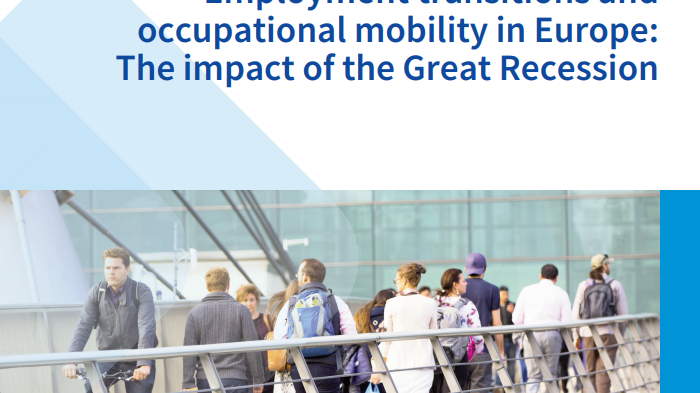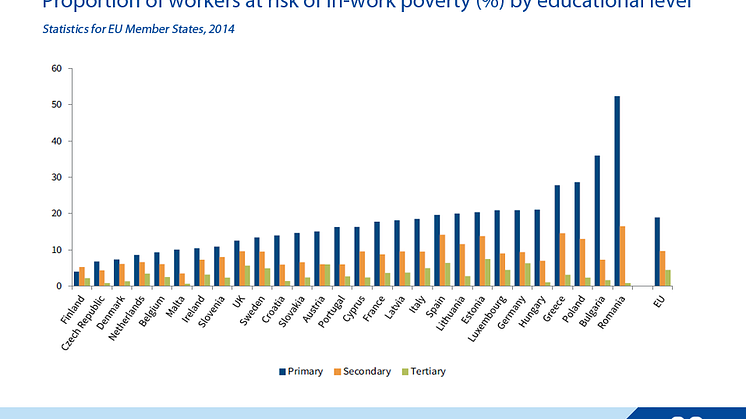
News -
More than one in four working-age adults in the EU remain economically inactive
Unemployment in the EU continues to fall, however more than one in four of the EU’s working-age population are economically inactive; meaning they are not working and are either not seeking work or are not available for work. Furthermore, the vast majority of economically inactive people would like to work in some form. Eurofound’s new publication Reactivate: Employment opportunities for economically inactive people looks in detail at what could be Europe’s most important economic resource.
The number of economically inactive people has been steadily declining in the EU in recent years: in 2015 it stood at 27.5%, down significantly from 31.4% in 2002, and less than the pre-crisis figure of 29.7% in 2007. However, this substantial section of the population remains outside the labour market, and is not included in official employment statistics. While employment policy tends to focus primarily on the unemployed, there is scope for policies to focus more explicitly on the labour market integration of inactive people, and to harness their economic and social potential.
The new report examines groups within the inactive population that find it difficult to enter or re-enter the labour market and explores the reasons why. It also maps the characteristics and living conditions of these groups, discusses their interest in taking up employment and examines the barriers that prevent them from doing so. It finds that around four out of five inactive people would like to work at least some hours per week, depending on their financial needs, and approximately half would like to work 32 hours or more. The desire to work is particularly strong among students and homemakers.
The report also looks at strategies currently being implemented by Member States to promote the inclusion of those outside the labour market. It highlights that inactive people often face more than one barrier to employment, such as a low level of education coupled with care responsibilities, and stresses the importance of focusing on the specific needs of the inactive population.
Finally, the report underlines that Member States should fully implement the 2008 European Commission Recommendation on the active inclusion of people excluded from the labour market in the design and implementation of labour market integration strategies. In this regard, the European Pillar of Social Rights, which refers to inactivity as an issue in relation to inclusive education and lifelong learning, provides a unique and timely political impetus.
Download the report: Reactivate: Employment opportunities for economically inactive people






